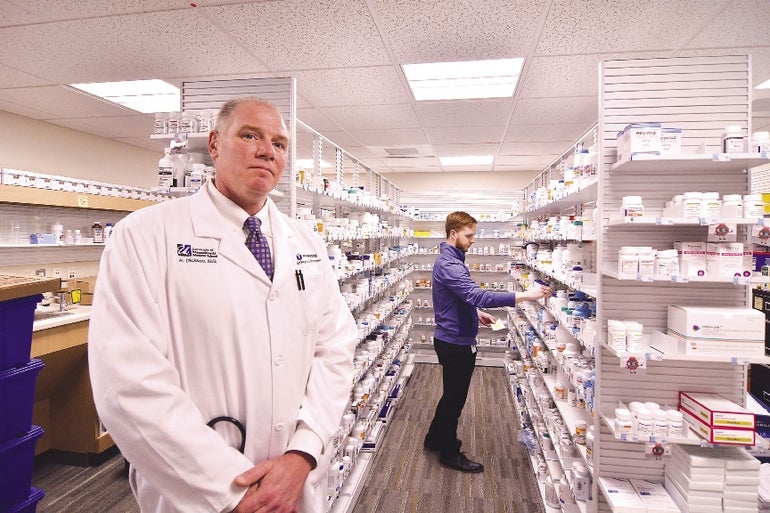The idea that healthcare organizations make monetary gains from caring for ill patients may be hard for consumers to stomach, but profit-driven health care is a growing local and national trend that doesn’t necessarily carry ill effects.
The ownership status of community hospitals over the last two decades, both in Massachusetts and the U.S. at large, is a telling signal of the shift away from nonprofit toward for-profit health care. In 1999, about 15 percent of the nation’s community hospitals had for-profit owners; by 2015, that figure had risen to 21 percent. The change in Massachusetts was even greater, with for-profit hospital market share growing from roughly 9 percent to 22 percent, according to California nonprofit Kaiser Family Foundation.
The trend has trickled down to Central Massachusetts, with hospital providers and others announcing plans to grow here and affiliate with their nonprofit counterparts in recent months.
Yet, as more for-profit providers move into Central Massachusetts, the CEO of the region’s dominant provider – Eric Dickson of UMass Memorial Health Care, headquartered in Worcester – is wary of for-profit medicine in the absence of a local, nonprofit partner, as for-profit companies may capitalize on the most profitable areas of health care while eschewing services the community needs that don’t render high payments.
“That’s draining resources out of this community and sending it back to shareholders that can live anywhere,” Dickson said.
For-profit vs. nonprofit quality
While consumer advocates have raised concerns about profit-driven medicine and its impact on healthcare access and quality, a 2014 study from Harvard School of Public Health (HSPH) and Brigham and Women’s Hospital in Boston showed that switching from nonprofit to for-profit status appeared to boost hospitals’ financial stability without lowering the quality of care or reducing the proportion of minority and poor patients treated.
“Over the past decade, hundreds of hospitals have switched from being nonprofit to for-profit. Our study finds that if the public health goal is to improve hospital care, then focusing on things like for-profit or nonprofit status is a distraction.,” said Ashish Jha, professor of health policy and management at HSPH and senior author of the study, in a press release Harvard issued when the study was released.
While local industry experts largely agree, the arrival of more for-profit healthcare companies is a game changer for existing providers who are confronting them through acquisitions and affiliations.
“For-profit and nonprofit, particularly in Massachusetts, have worked really, really well together,” said Mike Trigilio, president of the personal care division at Amedisys Inc., a for-profit home health and hospice provider based in Baton Rouge, La., and publicly traded on the Nasdaq.
Acquisitions & affiliations
Amedisys is the latest for-profit provider moving into Central Massachusetts, planning to make Worcester a new hub for expansion in Central and Western Massachusetts following the acquisition of Home Staff, the home health care division previously owned by Worcester-based Fallon Health and VNA Home Care, both local nonprofits.
The Louisiana company acquired Home Staff because it was its most serious competition in Central Massachusetts for home health care, said Trigilio. Now, it will be the major competitor for smaller home health players, with Amedisys having edge in terms of scale and expertise in comprehensive home health services.
“You’re really measured based on your quality, and how you achieve what you set out to do,” Trigilio said, noting for-profit and nonprofit healthcare operations aren’t significantly different.
The Home Staff acquisition is the latest in a string of for-profit providers moving into the region, including the state’s second largest player – for-profit Steward Health Care System in Boston – making inroads through its planned acquisition of the Central Massachusetts Independent Physician Association. These are in addition to the region’s existing major for-profit provider: Tenet Healthcare, the owner of Saint Vincent Hospital in Worcester and MetroWest Medical Center with campuses in Framingham and Natick.
Looking at data, focusing on margins
Edward Moore – president and CEO of nonprofit Harrington HealthCare in Southbridge, who formerly worked at MetroWest Medical Center when it was owned by Tenet Healthcare of Dallas and for-profit Vanguard Health Systems of Tennessee – said there are differences between the for-profits and nonprofits approach to medicine
For-profits are “very data driven. That’s not to say the nonprofits aren’t but … they have greater capability because of size and corporate structure to invest in analytics,” Moore said, including, “a big focus on making sure that shareholder expectations are met.”
Of course, nonprofit healthcare providers look at profits, too, but instead they call them surpluses. UMass Memorial Health Care, for example, posted $68 million in surplus for 2016.
David Schildmeier, spokesman for the Massachusetts Nurses Association and a veteran healthcare public relations expert, said nonprofit and for-profit providers today are similar in their approach to providing services, because the state did away with a healthcare rate-setting process in the 1990s in favor of a deregulated competition.
“It’s all about the budget,” Schildmeier said. “How can we maximize the budget – and the surpluses?”
Healthcare providers are under increasing financial pressure because of changes in federal reimbursements and because of state healthcare reform aimed at curbing cost growth.
Profits, for the mission
These pressures led to a strategy toward profitable ventures at UMass Memorial Health Care, said Dickson
Through its UMass Health Ventures Inc. division, UMass Memorial has inked affiliations with for-profit healthcare companies with specialty niches, such as Shields MRI and Carewell Urgent Care. A new affiliation with for-profit ATI Physical Therapy, a national provider, is undergoing a review by the state Health Policy Commission.
The affiliations generate profits, said Dickson, and those are spun back into the system to fund other services that he called mission-oriented, which are necessary programs the system loses money on, such as funding for UMass Medical School and treatment of the uninsured.
“We want to work with excellent for-profits that are willing to give up a portion of their venture … to support the mission-oriented activities,” Dickson said.

